Discover genuine Vietnamese architecture which is harmoniously influenced by French, Japanese and Chinese architectural styles.
The traditional handicraft village in Hoi An Old Town features silk, pottery, lantern, and ceramics making. These treasures have been passed down for generations.
Satisfy your hunger with traditional Vietnamese dishes such as Banh Beo, Nem Nuong and Banh Bao.
One of the most important things to keep in mind when traveling is the weather. The weather in Hoi An has only two seasons: the rainy season (September – December) and the dry season (January – March) (January – August). The best time to visit Hoi An is from February to April when the weather is mild and ideal for sightseeing.
September to November does not seem to be a good month to visit Hoi An as it rains every day and flooding can occur at any time. Typhoons can overwhelm the whole city and the sites are only accessible by boat.
There are also tropical storms in Da Nang in October and November. Precipitation is highest from September to November. The best time to travel to Da Nang is from February to April. If possible, avoid the months of May to July, when Da Nang is full of domestic travellers.
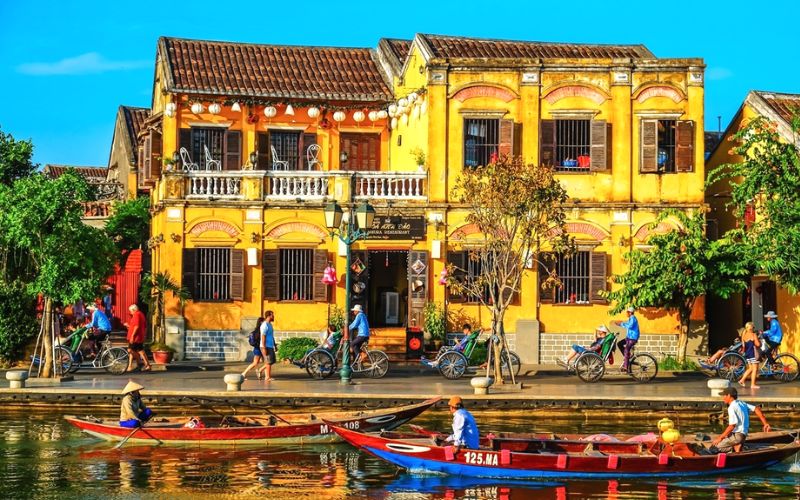
Hoi An
Da Nang and Hoi An are top pick destinations in Vietnam which are always included intop Vietnam tours. You can spend your free time exploring ancient houses and traditional villages, sunbathing on the beaches, and sampling local specialities from street vendors.
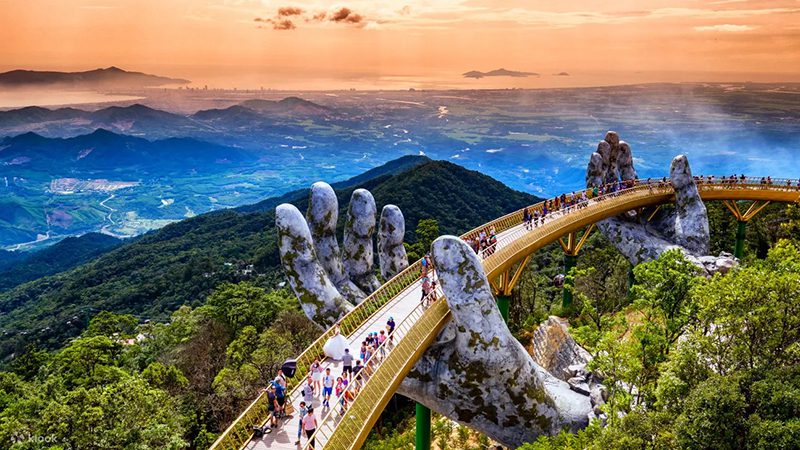
Golden Bridge
Vietnam’s recently debuted Golden Bridge is appearing on screens all over the world. The bridge provides breathtaking panoramic views of both the valley below and the rolling Trng Sn mountains. This architectural marvel was built to entice more tourists into Danang’s Bà Nà Hills and is nearly 4,600 feet above sea level.
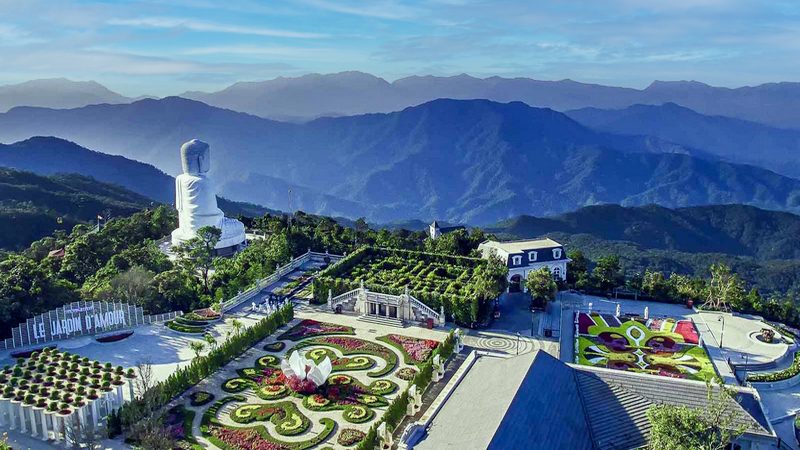
Ba Na Hills
Ba Na is a mountaintop resort complex 42 kilometers from the city center that features many luxury restaurants, world-class accommodations, and entertainment. This location was discovered by French colonists in 1919 and is now known as the “Da Lat of Da Nang City.”
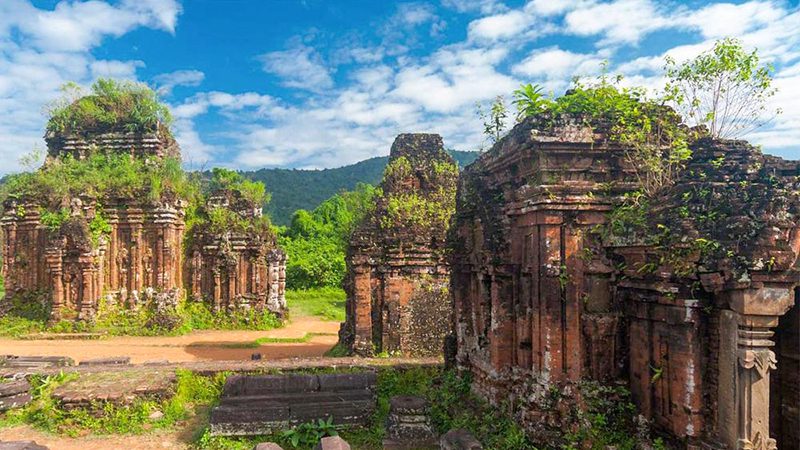
My Son Sanctuary
My Son is a collection of Hindu-themed ruins dating from the 2nd to the 17th centuries that belonged to the ancient Champa civilization. In 1999, it was designated a UNESCO World Heritage Site.
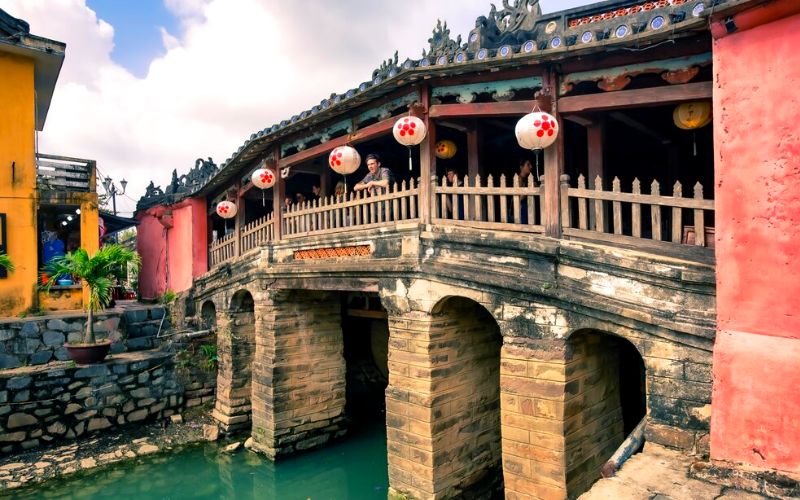
Japanese Covered Bridge
The Japanese Covered Bridge is a well-kept secret in Hoi An Old Town. It was built by Japanese merchants at the end of the 16th century. It connected the Japanese and Chinese communities on the western side of town.
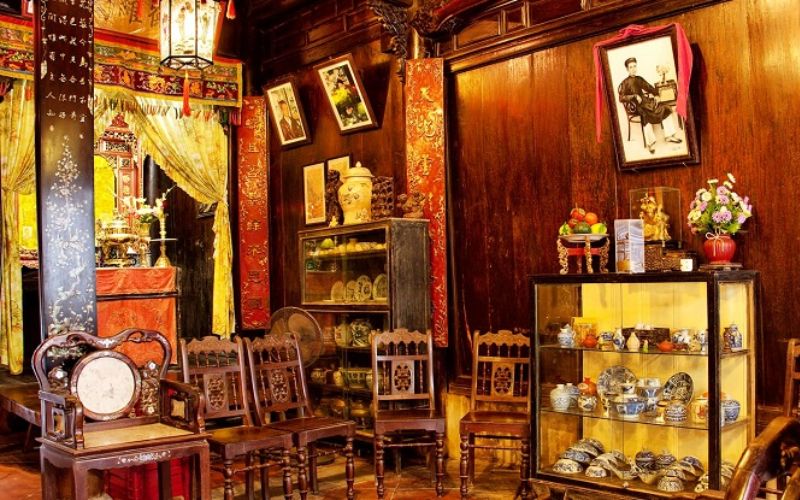
Old House of Tan Ky
Tan Ky is the most famous of Hoi An’s three ancient houses (the others are Phung Hung and Duc An). This is a 200-year-old Vietnamese family home passed down through seven generations. This house has some unusual features, such as a rustic wooden balcony and pulleys to raise furniture in the event of a flood.

Scuba Diving in Cham Island
This island is made up of eight pristine islets: Hon Lao, Hon Kho Me, Hon Kho Con, Hon Tai, Hon Dai, Hon Mo, Hon La, and Hon Ong. It is recommended to take a day trip to Cu Lao Cham Island to explore the biodiversity, which includes unspoiled jungles, beautiful beaches, colourful coral reefs, and abundant marine life.
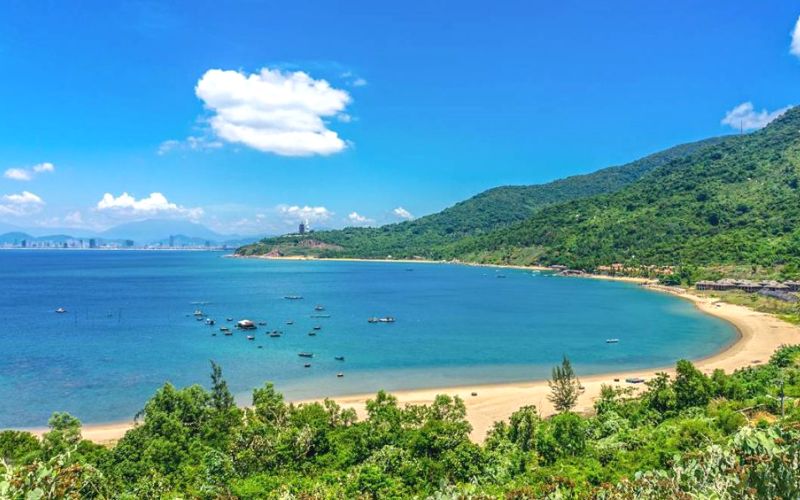
Son Tra peninsula
Son Tra Peninsula is approximately 60 square meters wide and is located 10 kilometres from the city centre. Son Tra, designated as a nature reserve in 1997, is home to a diverse range of flora and fauna. Coming here, you will find long white-sand beaches that have yet to be spoiled by mass tourism.
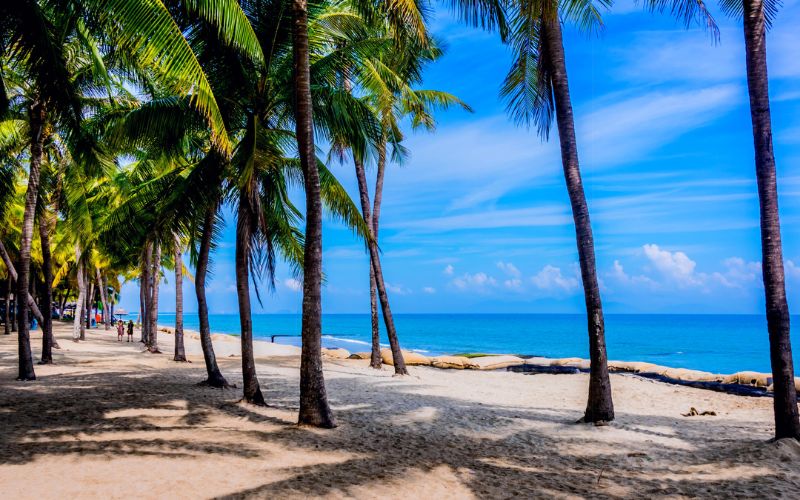
Cua Dai Beach
A place that you shouldn’t miss in Da Nang – Hoi An tours, Cua Dai is one of Central Vietnam’s best beaches for water sports like canoeing, surfing, snorkeling, and kayaking.
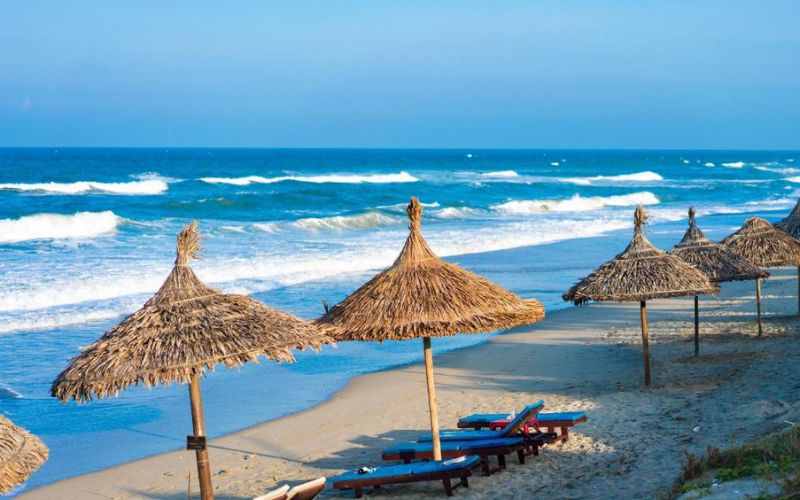
An Bang Beach
Come to An Bang Beach to enjoy the peace and quiet, stroll along the white sand, photograph breathtaking sunrises and sunsets, and watch the children play on the beach.
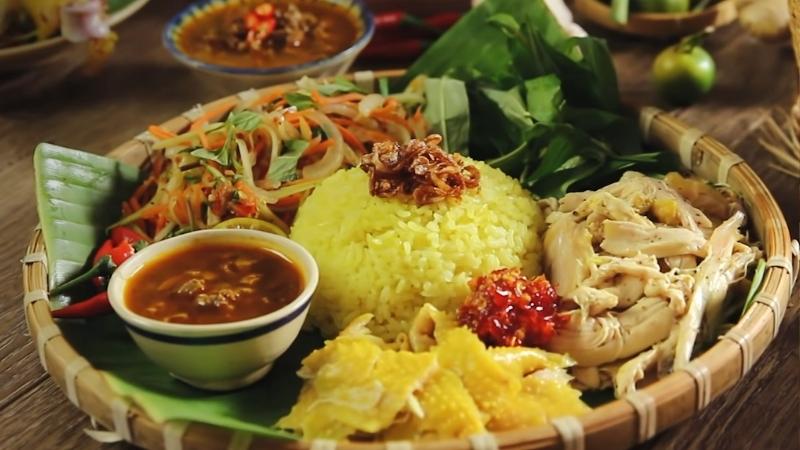
Com ga
Chicken rice is Hoi An’s specialty and the soul of this atmospheric city. Com ga is found on almost every street corner. The meticulous and skilled cooking techniques of the local chefs have elevated the simple rice and chicken dish into a dedicated speciality found only in Hoi An. Seasoned rice is served with shredded chicken, onion, tomatoes, and lettuce.
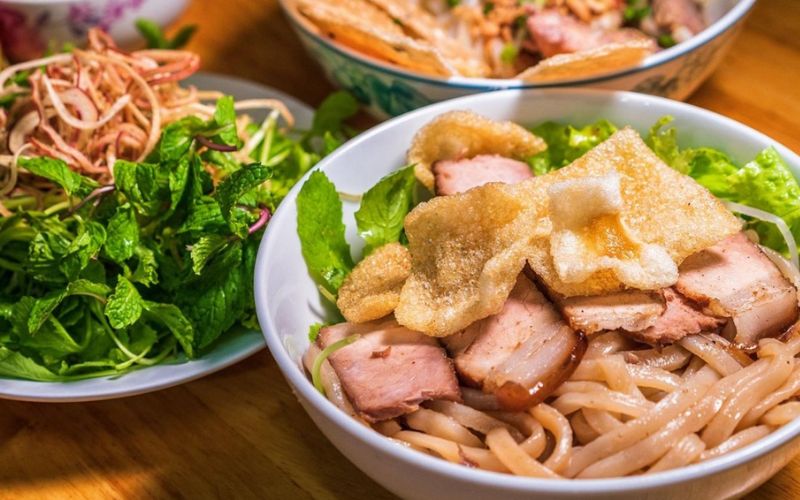
Cao Lau
When compared to other Vietnamese dishes, this dish has some distinguishing features: the thick noodle is similar to Japanese udon, the rice crackers and pork are Chinese in style, and the broth is Vietnamese. It is easy to find a restaurant that serves Cao lau in Da Nang and Hoi An. Tran Phu Street and the Japanese Covered Bridge are home to the best restaurants.
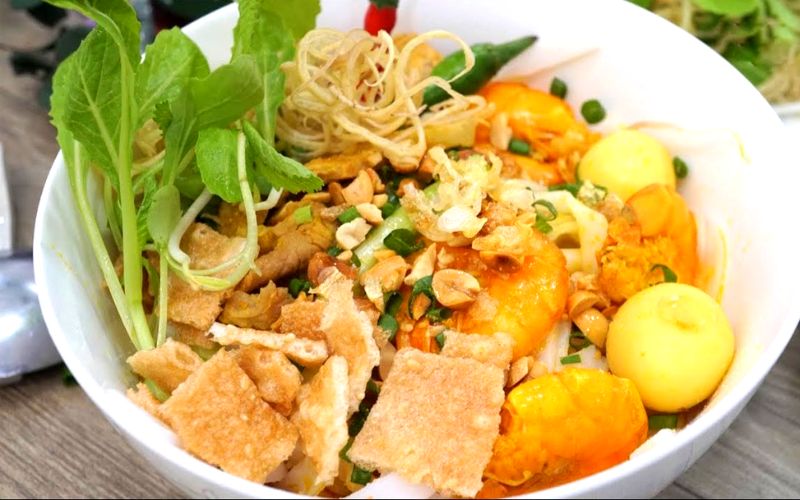
My Quang
This noodle originated in the province of Quang Nam and has since become a popular breakfast and lunch dish. This dish is made with rice noodles, meat, and herbs like basil, cilantro, scallions, onion leaves, and lettuce. You can add one or more of the following meats to your Mi Quang bowl: shrimp, pork, chicken, or beef. This dish can be eaten with or without broth.
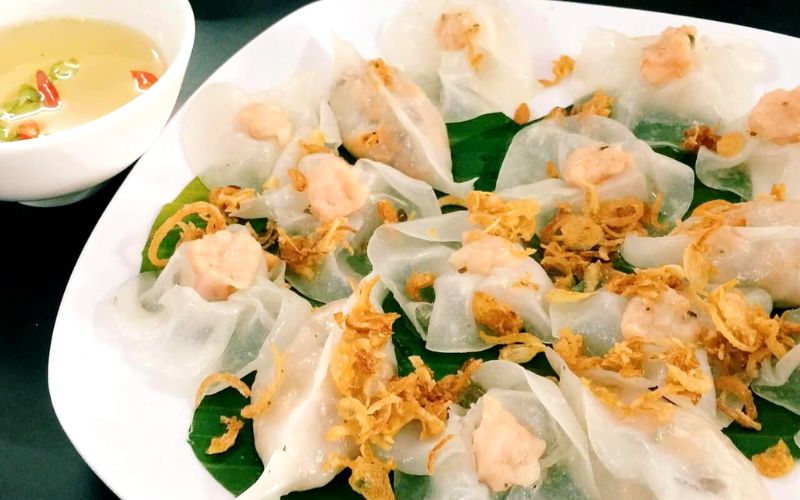
Banh Vac
These two types of dumplings have nearly identical ingredients and cooking methods. Typically, banh bao and banh vac are served on the same plate. Banh bao consists of minced shrimp, peppercorn, garlic, green onion, and citronella, whereas banh vac consists of ground pork, mushrooms, and green onion.
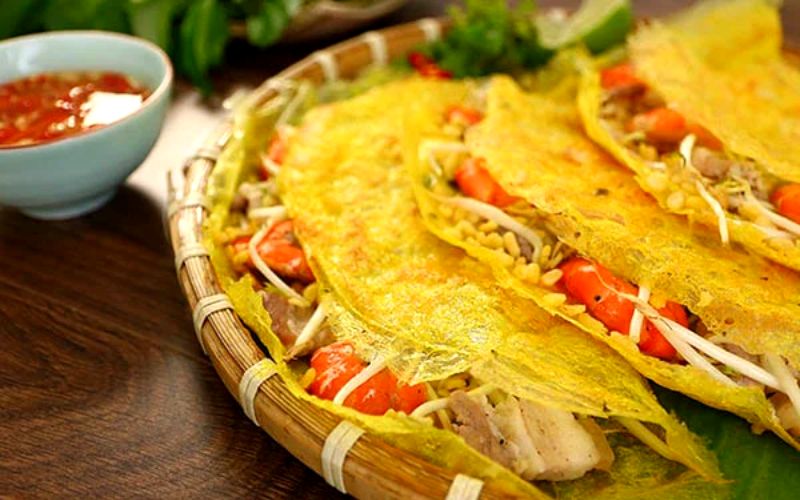
Banh xeo
The main ingredients in this dish are rice flour, shrimp and meat, as well as bean sprouts, onions, and mushrooms. The heart of banh xeo is the sweet fermented peanut butter sauce. Wrapping some banh xeo in lettuce leaves and dipping it in the sauce, the taste of it may be one of unforgettable things during your Da Nang – Hoi An tour.
And that concludes our recommendations for the best of Da Nang and Hoi An. Don’t hesitate to contact us if you’re interested in having Da Nang – Hoi An Tours within a day of all the top things mentioned above.
April is the most dazzling month in Danang, as golden sunshine, blue ocean, and festivals begin to flourish throughout the city. Without…
The central region of Vietnam which encompasses Da Nang and Hoi An is regarded as a significant hub for tourism. This area…
Vietnam is a remarkable combination of natural beauty and cultural diversity. You can choose to travel to Vietnam for a variety of…